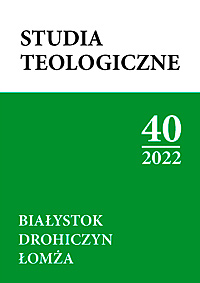Czy można pogodzić wiarę z postulatem racjonalności? Analiza wybranych modeli racjonalności wiary
Analysis of selected models of the rationality of faith
Author(s): Łukasz PinioSubject(s): Christian Theology and Religion, Theology and Religion
Published by: Kuria Metropolitalna Białostocka
Keywords: faith rationality models; rationality; faith; fundamental theology; probabilistic model of rationality; classical model of rationality; critical model od rationality
Summary/Abstract: The article presents selected models of the rationality of faith/belief: classical, probabilistic and critical. Rationality – as a concept – refers primarily to a person who reasonably maintains his beliefs (related to faith) and is not a characteristic that determines the content of the beliefs themselves. The classical model of rationality says that only such beliefs, the truth of which has been indisputably proven, can be rationally held. This means that the existence of God must be evidentially demonstrated. Fundamental theology, based on this model, is concerned with developing such evidence. The probabilistic model of rationality indicates that the unquestionable attainment of absolute truth (on matters of God’s existence) is unfeasible for human reason. It can only demonstrate that the views taken are highly probable. In this model, fundamental theology seeks to demonstrate that the existence of God is highly probable. A significant limitation of this model is inductive reasoning. The critical model of rationality is based on falsification, a form of deductive reasoning. Beliefs, if they are coherent, can be accepted as long as they are not shown to be false. Fundamental theology should therefore be concerned with an apologetic response to arguments that criticize religious belief.
Journal: Studia Teologiczne Białystok Drohiczyn Łomża
- Issue Year: 40/2022
- Issue No: 1
- Page Range: 97-120
- Page Count: 24
- Language: Polish

